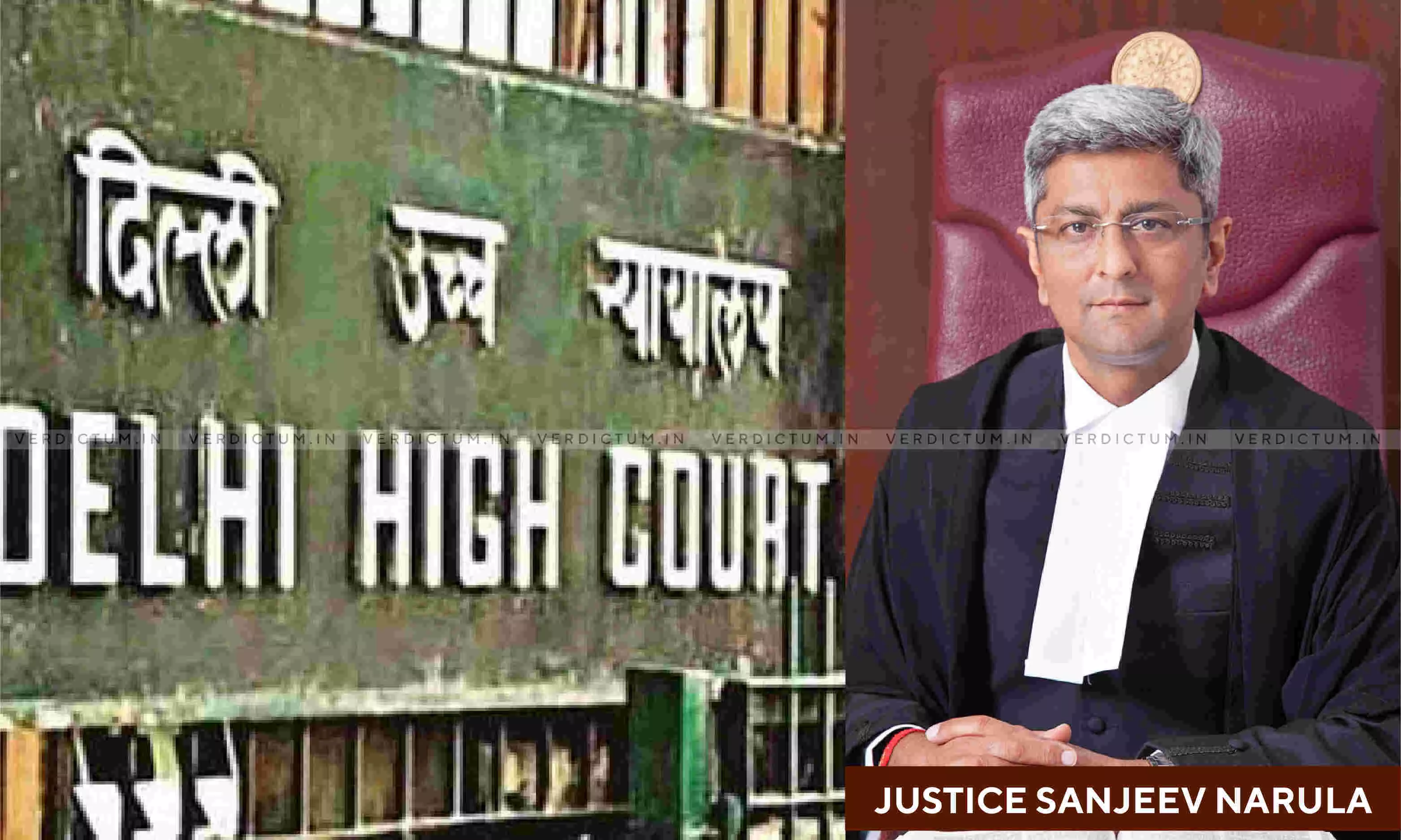
Court Must Balance Its Inherent Powers To Correct Any Wrong Committed With Necessity Of Allowing Parties To Rectify Their Errors In Good Faith: Delhi HC
 |
|The Delhi High Court said that the court must balance its inherent powers to correct any wrong committed with the necessity of allowing parties to themselves rectify their errors in good faith.
The Court was deciding a suit filed by Global Music Junction Pvt. Ltd. against Annapurna Films Pvt. Ltd., arising from an alleged breach of a Production Agreement.
A Single Bench of Justice Sanjeev Narula observed, “… the Court must exercise its inherent powers with caution and responsibility. The principles laid out in the aforenoted judgments underscore that the inherent powers under Section 151 CPC should be invoked sparingly and only when no specific provisions apply. Further, as emphasised in Bal Thackrey (supra), the use of inherent powers must be judicious and not excessive, ensuring that justice is served without overstepping procedural boundaries. The Court must balance its inherent powers to correct any wrong committed with the necessity of allowing parties to themselves rectify their errors in good faith. Therefore, while the Court recognizes its inherent powers, yet it is not inclined to invoke the same since the Plaintiff has taken proactive steps to rectify their mistake.”
The Bench said that punitive measures in contempt cases should be reserved for instances of clear and wilful disobedience.
Senior Advocates Dushyant Dave and Akhil Sibal represented the plaintiff while Senior Advocate Sandeep Sethi represented the defendants.
In this case, there was an alleged breach of a Production Agreement between the plaintiff, a music company specializing in the production, distribution, and monetization of music and entertainment content and the defendant, a renowned Bhojpuri artist engaged in singing, dancing, and acting. The plaintiff contended that under the said agreement, all copyright in the songs/content created by the defendant during the agreement term, vested with the plaintiff. The defendant allegedly infringed the plaintiff’s copyright and exclusively obligations by creating content and allowing third parties (defendants) to promote and monetize it on YouTube.
Such infringement prompted the plaintiff to file the lawsuit. The plaintiff sought interim relief in the form of an injunction and the same was initially granted on an ad-interim basis, later vacated, but then subsequently reinstated in specific terms by the Division Bench. The judgment granted limited injunctive relief, clarifying that the defendant was not precluded from singing, acting, or dancing in the Bhojpuri Film Industry, on stages, social media platforms, and national television channels. Despite the injunction being granted against him, he invoked the contempt jurisdiction of the court against the plaintiff.
The High Court after hearing the contentions of the counsel noted, “The Court can initiate an action for criminal contempt on its own motion, or on a motion made by or with the consent in writing of the Advocate General of India. These conditions have clearly not been met in the present case. The procedure for initiating criminal contempt proceedings is stringent to safeguard against arbitrary action that could undermine the integrity of the judicial process. The requirement for consent from the Advocate General or initiation by the Court itself ensures that criminal contempt is reserved for serious breaches that genuinely obstruct the administration of justice.”
The Court emphasised that moving forward, should the plaintiff engage in the enforcement of court orders through communications with third parties, they must ensure the accurate representation of the court’s directions to avoid any potential misrepresentation. Such condition was imposed to ensure that the plaintiff's future actions are transparent and in strict compliance with judicial orders, thereby upholding the integrity of the judicial process.
“… the application under Order XXXIX Rule 2A CPC is not maintainable as the injunction was issued against Defendant No.6, not the Plaintiff. Consequently, the restrictions imposed on the Plaintiff through order dated 21st February, 2024, specifically prohibiting direct communication with any party to enforce the Court’s injunction order, are hereby recalled. The Plaintiff’s actions, though questionable and arguably containing elements of deliberate miscommunication, were later corrected in good faith through their prompt issuance of clarificatory notices, which reflects a genuine effort to rectify the mistake”, it said.
The Court directed the plaintiff to ensure that any future communications with third parties for the enforcement of court orders are clear and accurate, thereby eliminating any ambiguity or potential for misrepresentation. It further ordered that any enforcement notice issued by the plaintiff must include a comprehensive summary of the relevant court orders, clearly delineating the scope and extent of the injunctions or directions.
Accordingly, the High Court disposed of the application.
Cause Title- Global Music Junction Pvt. Ltd. v. Annapurna Films Pvt. Ltd. & Ors. (Neutral Citation: 2024:DHC:4263)
Appearance:
Plaintiff: Senior Advocates Dushyant Dave, Akhil Sibal, Advocates Yashvardhan, Rhia Marshall, Kritika Nagpal, Gyanendra Shukla, Akshay Gupta, Akshat Malpani, Ayushi Gaur, Asavari Jain, and Adityaraj Patodia.
Defendants: Senior Advocate Sandeep Sethi, Advocates Neel Mason, Vihan Dang, Pragya Jain, Ujjawal Bhargava, Aditya Mathur, Samiksha Godiyal, Govind Manoharan, A. Karthik, Smrithi Suresh, Sreepriya, Gunjan Rathore, Nishchaiy Sharma, and Sumer Seth.